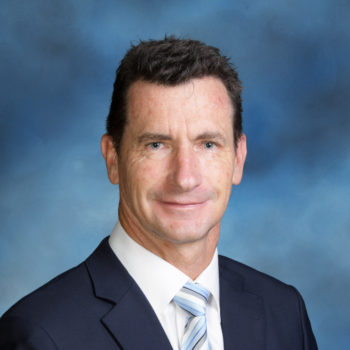Message from the Principal
Powerful Stuff
Feedback has been shown to be one of the most powerful tools to improve learning. As coaches, parents, colleagues and teachers we give feedback all the time to others to support learning, changes in behaviour or progress towards a goal.
In education, one powerful strategy to drive feedback to students and teachers is called formative assessment. Formative assessment provides the answers to the questions:
- Is learning on track?
- What needs to change?
- Where does learning go next?
It can be immediate (a specific question, thumbs up-thumbs down) or planned (a quiz, a student moderation). It can be built into every lesson and it can be a common task across the year level that aligns to the knowledge and skills of the final assessment (assignment, test, oral presentation, etc.) at the end of the unit. The assessment at the end of the unit is called the summative assessment task.
Often, schools tend to focus more on the summative (end of unit assessment) task than they do on improving the quality and consistency of the formative (during the unit of work) task. It is important to have quality summative tasks, but the power really lies in the formative task.
The purpose of formative assessment is to provide feedback for learning. This can be:
- Feedback to the teacher about how and where to modify the teaching program to meet the needs of one or more of their students
- Feedback to the student on how they are progressing and moving towards the end of unit summative assessment
- Feedback to parents so they are aware of learning progress and can assist their son/daughter in deciding what they need to do next.
One of our main priorities at KGV is to improve the quality of formative assessment across our school. There are some great examples of teachers at KGV providing feedback to students in every lesson to help them in their next step in learning. We are also currently improving how we report to parents by increasing the quality and timeliness of information and reports communicated with parents.
When I meet with parents and we discuss the type of information they would like to receive they consistently say they want to know:
- What has my child been learning?
- Where are they at with this unit of work?
- What do they need to do next and how can I support them?
We believe these are three simple and powerful questions that align completely with what we are working on as a school. As I have indicated in previous newsletters, feedback is a powerful force for learning and life. As my father would always say, “feedback is the breakfast of champions”. As a school we are determined to promote and build upon the strong feedback that our students are already getting. We want to place more of the focus on feedback during the learning (formative) and less of the feedback after the final test, assignment or project (summative).
Improving the feedback we give students is a key strategy to ensure that we deliver on our School Vision to personalise learning as we – ‘create a school for one’. A place where each and every person engages in remarkable learning to achieve at high levels and be the best they can be.
Kind regards
Mark Blackshaw
Principal
King George V




